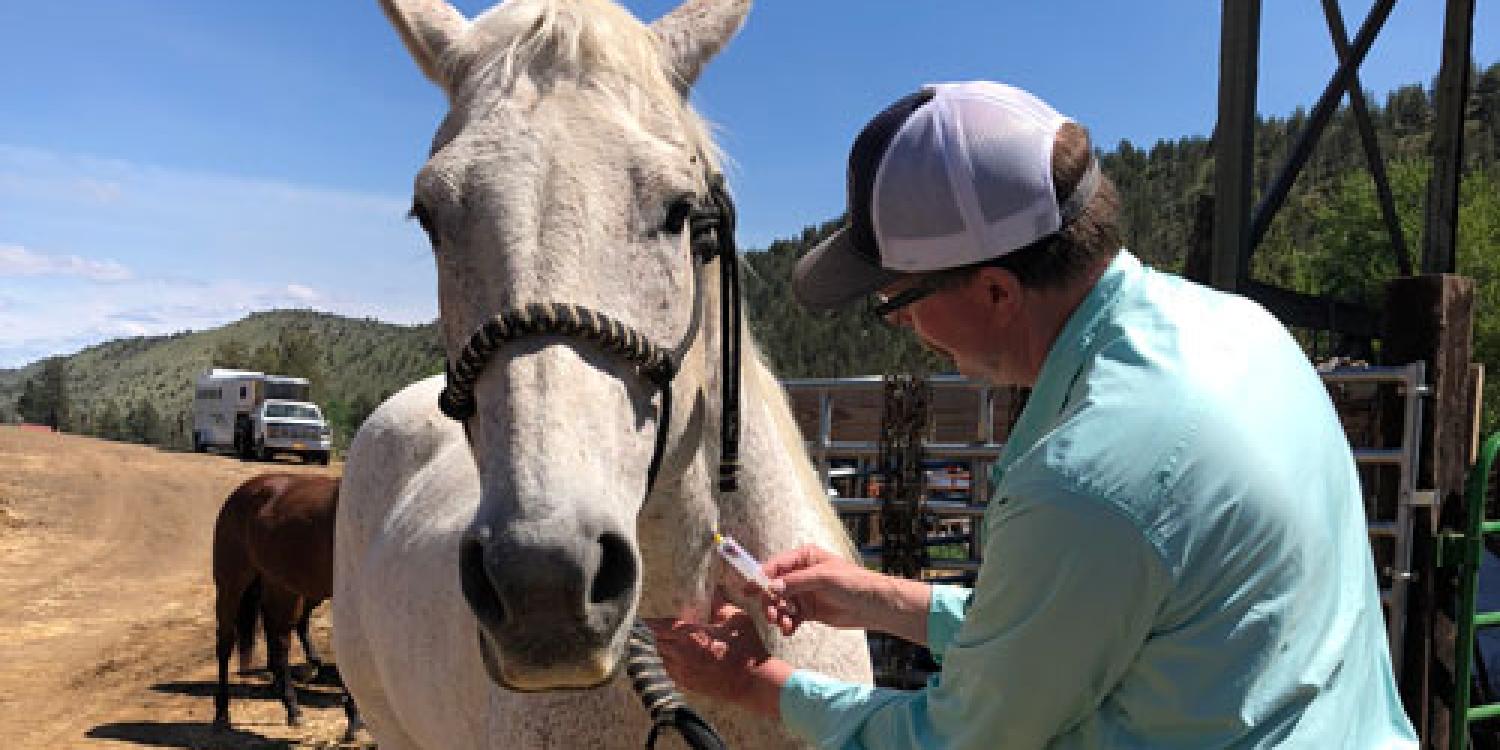
Equine Infectious Anemia (EIA) is an incurable, often fatal infectious disease that threatens horse, donkey and mule populations. Even if the animal survives the initial effects of the disease, it carries the virus for the rest of its life. One–fifth of a teaspoon of blood from a horse with acute EIA contains enough virus to infect 1 million horses.
Dr. Leroy Coggins was the first to develop an effective test for antibodies specific to EIA in 1970. Since then, horse owners are required to get a “Coggins test” when they cross state lines or register for a horse show or rodeo. It is also recommended to get horses tested annually. Horses that test positive typically are euthanized to protect the rest of the horse population.
In the early 1980s EIA was discovered in wild horses in the Confederated Tribes of Warm Springs community. Hundreds of horses had to be euthanized at a great economic loss. Since this tragic outbreak, the U.S. Department of Agriculture-Animal and Plant Health Inspection Service (USDA-APHIS) periodically tests horses to ensure the disease is no longer present in Warm Springs.
An average cost of having a horse tested for Coggins is about $125. Each spring, Oregon State University Extension collaborates with USDA-APHIS and Warm Springs Range and Agriculture Department to offer low-cost Coggins testing and vaccinations for horses in Warm Springs.
Scott Duggan, an Extension livestock specialist, notifies tribal members to register for the clinic, held at the Warm Springs rodeo grounds. If a tribal member has more than four horses, USDA-APHIS veterinarians travel to their home or ranch to vaccinate horses. Members only pay $10 for the Coggins test. Extension has tested an average of 30 horses a year, creating an approximate savings of $3,300 a year for tribal members.